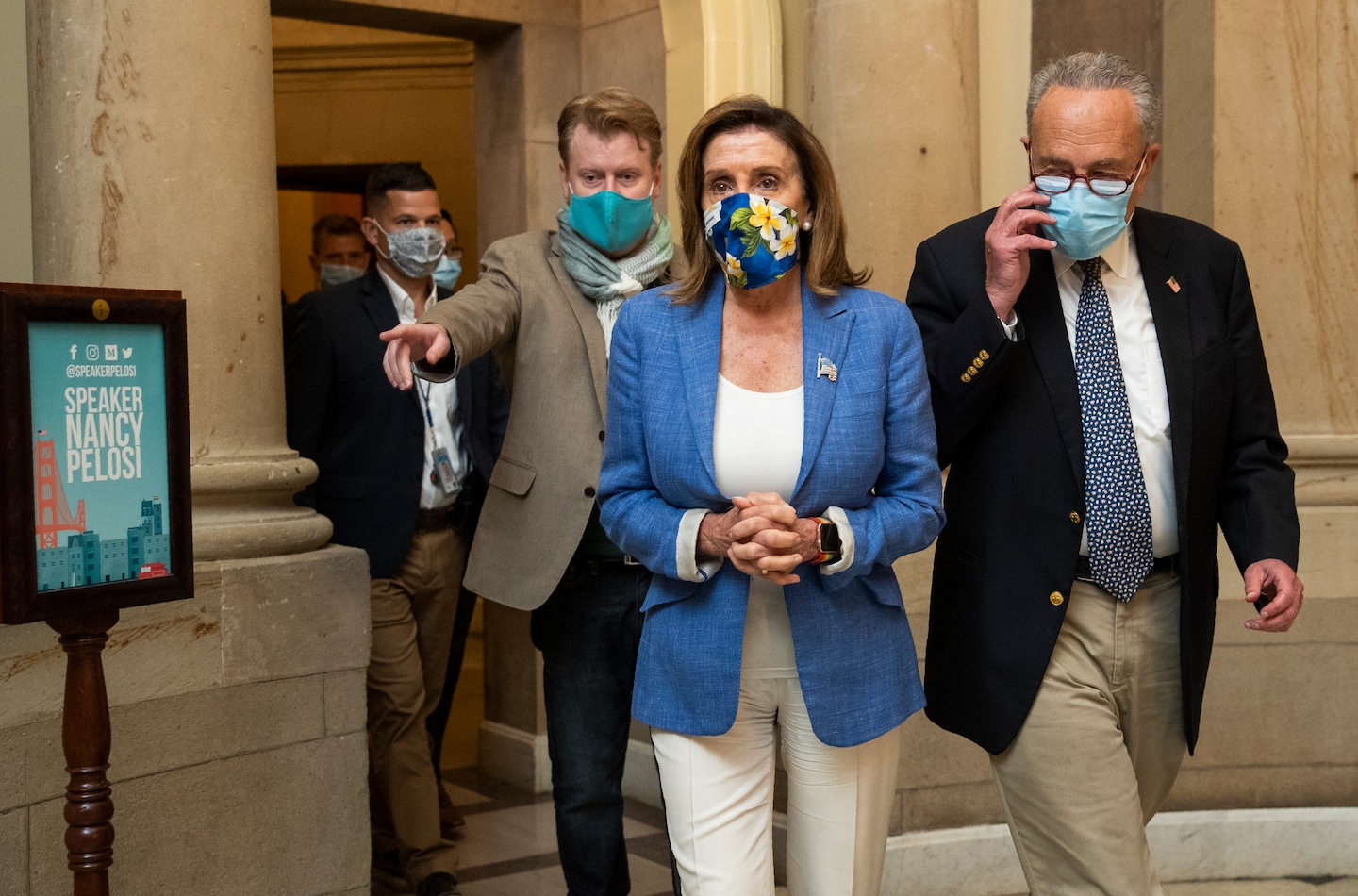Pelosi, Mnuchin point to disagreements as deal on unemployment benefits, coronavirus relief remains elusive

Pelosi (D-Calif.), who has been pushing for a comprehensive bill to address multiple economic and health care needs, insisted that the administration continues to resist a public health strategy to attack the virus, which continues to surge in many states.
“That is one of the points we still have not come to any agreement on,” Pelosi said on ABC’s “This Week.”
In a separate interview on the same program, Mnuchin defended the administration’s response to the pandemic, while pointing to Democrats’ demands for $1 trillion in new state and local aid as a non-starter.
“The Democrats right now are insisting on over $1 trillion to state and local governments and that’s something we’re not going to do,” Mnuchin said.
Pelosi and Mnuchin have met almost daily for the past week at the Capitol along with Senate Minority Leader Charles E. Schumer (D-N.Y.) and White House chief of staff Mark Meadows as they try to craft a new coronavirus relief bill.
After struggling to reach agreement among themselves on an overall bill, Republicans and administration officials have been pushing for a short-term fix to address the expiration of $600 weekly enhanced unemployment benefits, which lapsed Friday for some 30 million workers.
Democrats continue to resist a short-term approach, and rejected an administration proposal to extend the $600 benefit for an additional week to give more time to negotiate. Pelosi has said that idea was pointless since the parties were not close to a deal.
“We will be close to an agreement when we have an agreement,” Pelosi said Sunday.
Republicans have proposed reducing the $600 weekly payment to $200, or adopting a formula that would amount to replacing about two-thirds of a worker’s wages before they were unemployed. They have consistently argued that the $600 enhanced benefit, which comes on top of whatever benefit is provided by state unemployment systems, is so generous it provides a disincentive for jobless people to return to the workplace.
Mnuchin repeated that argument Sunday, while acknowledging it was not always the case.
“Let’s just face it, we know factually there are cases where people are overpaid. There are cases where people are underpaid,” Mnuchin said.
For many low-wage workers, the benefits have amounted to a bump in pay from what they were making at previous jobs. Studies have estimated that between 40 and 68 percent of people on unemployment insurance are making more with the extra $600 than they were previously at work.
But some preliminary studies on the issue have not found that the temporary bump is a disincentive for a noticeable number of workers. A recent study by three Yale economists found that workers receiving the extra benefits returned to work at roughly the same rate as others, finding “no evidence that more generous benefits disincentivized work.”
Pelosi suggested that Democrats could be open to an approach that reduced the $600 over time as the unemployment rate declines, an idea that has been embraced by a number of congressional Democrats.
“The amount of money that is given as an enhancement for unemployment insurance should relate to the rate of unemployment, so as that goes down you can consider something less than $600, but in this agreement it’s $600,” Pelosi said.
“We’re gonna work every day until we reach a reasonable agreement that’s good for the American public,” Mnuchin said.






